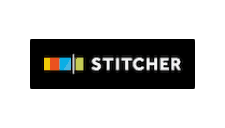Listen to Episode 20
Bonus: Watch the video of this episode on YouTube!
Show Notes
Adrienne has tons of practical tips and strategies to build relationships and make coaching successful, especially in such a large school community. Her experiences in many different types of coaching settings also provides some great insight into making coaching work – no matter what the context!
Building Rapport in your teaching community, what are your routines (walking the hall, eating lunch in the staff room) “The Coaching Bank” – how do you make connections with colleagues on a professional level, not just a personal one?
It always starts with the relationship. Leverage is much bigger because she’s stayed at this school, people know her now. Extrovert, naturally curious about people, coaching is a good fit for her. Paying attention to, or picking up on other people’s interests (personal or professional), genuinely curious, conversations without any agenda, toolbox of social skills: find out when a teacher is on duty and physically go there to accidentally run into that teacher. Making casual conversations happen can start a personal relationship.
Building a Culture of Coaching: Where/How do you start? Being an advocate for the importance of your role
Not something she could ever do by herself. In previous experience, she was the only coach (super lonely), no culture of coaching, and felt impossible to build. At UWC, the definition of coaching has evolved from integration (not so much pedagogy), to more pedagogical. In that time, more coaches have been hired, so understanding of the role has changed. More coaches helped build a team across the school. Significant professional learning money for Cognitive Coaching for everyone in leadership. Her work is now about how she adapts coaching in her domain. Culture exists already.
Staying motivated as a coach when you’re “the only one” who cares about tech-rich learning
Get into classrooms as often as possible. Worked with the willing, with those that saw value, and those relationships allowed her to feel connected. Capitalized on the relationships that were easy to build. Maintained her PLN on Twitter – this was critical. Now she doesn’t rely as much on her external network because of how much support she has at UWC.
The challenge of being “understood” as a coach – teachers don’t know what you do/think you just have free time
As an individual coach:
Google calendar is all publically accessible – not just free/busy, also includes the details of what she’s doing
Take advantage of opportunity that the Principal provides for her to share in morning briefing and weekly update (sharing informational tips AND procedural, a little bit about what she’s been doing and what teachers can do to take advantage of this)
Talk about your work in visible ways that don’t make it seem like you’re humble bragging. Listen and pay attention, and say “you mentioned that last week you were…. That reminds me of X conversation with another person in your department and they were having a similar issue”.
On a school-wide scale:
Lots of commonalities between coaches, even though the domains were different (literacy, numeracy, inquiry, etc), began to collect statements about what they believe and value about coaching, with the goal of putting those together to “relaunch” coaching. So that no matter which coach you came to, the language of those conversations would be consistent, same terms, same frameworks, etc. Also an opportunity to define coaching, along with menu options of ways coaches can support you. Framed around school-wide learning principles, and modified them for professional learning “We know learners do best when they feel safe and secure”) with a “therefore statement” (therefore coaches will…)
The many hats of coaching: coach, consultant, co-teacher, etc
Uses the data of which roles she’s using as a coach and share with senior leaders. For example, in her first year, every interaction with one department was technical support – an important piece of data to share with leadership.
Previously the majority of her time was spent as a tech specialist (this is the lowest access “hat”, sometimes it’s really necessary, but in terms of changing learning it’s the least transformative role). She has evolved out of this, the staff is more technologically competent, more towards consultant and coach. Weighing a bit more heavily on the consultant side. More aware of (and asking from teachers): what do you need from me? Focused on their own self-growth (not about resources).
What does data look like from coaching? What are you using to help motivate teachers to make improvements/changes? Assessing tech & tech integration, how do you give it value (teacher evaluation, teacher growth): “More Than Ticking the Box”
Very little. Collected student data from a blended learning project, around whether it improved student learning. This reflects the project, not coaching.
Leadership standards & coaching standards to be used as part of Professional Learning Project. So murkey to identify where she fits within those standards because she’s between coaching and leadership. Had a targeted conversation with 1 or 2 teachers to give feedback, specifically 2 that she was really unsure about her efficacy as a coach. The rest of the teachers got a survey (adapted from on a Jim Knight resource). Full staff surveys every other year, to compare the data.
What are ways that you make yourself invaluable as a coach? What are the things that teachers love that you do?
Consistency in communications;
Reliability, following up, helps hold people accountable;
More invitational in coaching, no threat, no one feels like they’re being evaluated, empowers teachers to direct things in whatever way they want to go;
Comes prepared, does her research based on teachers needs/questions;
Less focused on trends in technology.
Where do coaches fail? And what can we do about it?
When it feels forced, when a coach is asked to be part of a conversation by one person on the team, but not everyone wants a coach in on the convo. Can solve this by asking some questions about this, who sets the agendas, does some background research to find out who actually wants the coach present.
When a coach asks the wrong questions, or even just the tone that is used when asking questions. Sometimes can come off as questioning what teachers are doing, and that becomes threatening.
We can address this by thinking about the relationships: what are the intentions here, where is this coming from, what is the larger goal?
Can be dangerous if you think you’re the expert all the time, bring some humility to the role.
Tips for getting started as a coach in a new school
Get your ego out of it. Walk into every situation with an open curious mind. Genuine curiosity. Learn to be a really good listener. That’s how you will develop those relationships. Asking curious questions and actually listening is the most important thing you can do. Get to know as many people as you can, go to social events, be the person in the staff person during break, walk up to people and introduce yourself. Use allies, find out who they are and tap into them (these can be the first relationships you develop). Open communication with leadership (regular touch-base meetings). Calendar time for yourself – your time is not your own anymore – so you need to make sure you schedule that time in.
What’s one professional growth resource you would recommend and why was it impactful for your practice?
The Adaptive School (Garmston & Costa): A Sourcebook for Developing Collaborative Groups.
JOIN OUR MAILING LIST
Sign up for our #coachbetter mailing list to receive a newsletter every other week all about coaching in a school context. Each FREE newsletter features one of our relevant coaching videos, a practical coaching tip you can use right away, plus a great resource created or selected by the Eduro Team to help you #coachbetter!
CLICK HERE
#COACHBETTER ON FACEBOOK
Connect with other coaches, just like you, in our free #coachbetter Facebook group:
CLICK HERE
EVEN MORE COACHING RESOURCES
See all of our Eduro Learning coaching resources!
CLICK HERE
If there’s something you’re interested in, and we don’t have it, let us know!
PRIVATE MENTORING
Or if you want to see what the private mentorship experience is like, check out our Private Coaching sessions – and get your first coaching session for free – here:
CLICK HERE
ABOUT #COACHBETTER
We’re passionate about the impact instructional coaching can have on school culture, student learning and teacher professional growth. This podcast allows us to share inspiring ideas about coaching through conversations with innovative educators from around the world. Let us help you #coachbetter! We would love to hear your thoughts, ideas and questions so please drop us a comment below!
The Coach Certificate & Mentorship Program
An academic year of professional learning designed by coaches, for coaches!Do you want to feel more confident and inspired in your role as a coach?
Your Show Host
Kim Cofino

We love sharing great content!
Get authentic, relevant, practical content delivered right to your inbox!
Connect with Us





